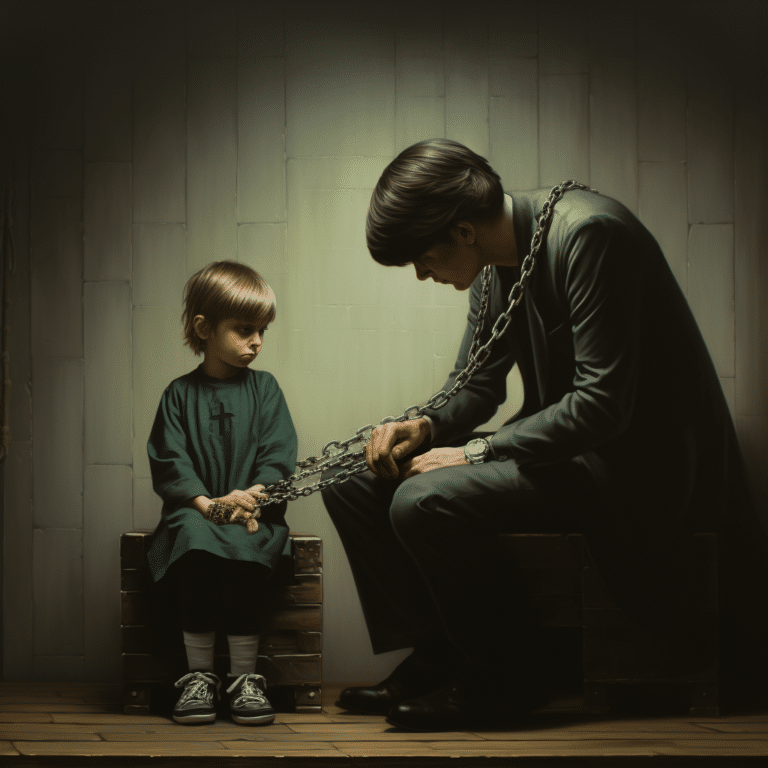Managing Ungrateful Stepchildren: Navigating Resentful Behaviors
As a parent, you do everything possible to make your children happy. You give them everything they want—when they want it, how they want it, and more. But what if they turn out ungrateful?
This is what happens in many families involving stepchildren. Simply put, they are the bane of all parents’ existence. They’re the ones who won’t even say thank you after huge sacrifices made to them.
They are also sneaky and manipulative as they will try to get everything for themselves. But, have you ever wondered what could cause their ungratefulness? Have you ever tried engaging them in a solution-finding conversation? If yes, what was their reactions/response during the conversation?
In a bid to help you deal with your stepchildren’s resentful behaviors and ungratefulness, we have compiled this guide. Keep reading to learn more.

Why Your Stepchildren Can Be Ungrateful
Before we address how to deal with resentful stepchildren behaviors, we first dig deep into the root cause. What could be behind this weird behavior? Is it the way they were raised? Or bitterness?
Here are some common reasons why your stepchildren maybe are ungrateful:
They haven’t learned how to be grateful
Their parents didn’t teach them how to express their gratitude towards you or even acknowledge that anything good happened in their lives. They don’t know what it means to say “thank you” or “I love you.”
They resent being raised by other people instead of their biological parents
They may feel that they were abandoned by their parents and resent having to pay rent, buy food and clothes, pay for transportation, and other expenses related to living in another household.
Their parents abused them
Additionally, if the stepchildren were physically or sexually abused by one or both of their parents (or both), they may feel deep-seated anger toward those who inflicted this pain.
They may then transfer this bitterness to you as a stepparent.
Now that we have a clue on what could be causing the stepchildren to be ungrateful, we can safely dive into the real crisis- dealing with ungrateful stepchildren.
Dealing With Ungrateful Stepchildren
Whether you’re dealing with a teenager or pre-teen, your stepchild’s actions can be frustrating and disappointing. However, with these ideas, you can easily win their hearts and make them grateful at long last.
Be patient
It’s hard for everyone but especially for angry parents who have dealt with their ungrateful children for many years. Be patient and wait for the child to grow up before you decide what you can do.
If you act hastily and prematurely, you might end up making things worse than if you had waited until they were older and more responsible adults.
Give them love, time, and patience
Give the child your full attention and ensure you listen to what they say. The more you talk to them, the more they will feel like you care about them and value their opinion.
Don’t take it personally
It’s easy to get upset and angry when your stepchildren act out or don’t appreciate what you do for them, but it’s important not to take it personally. They may be acting this way because they don’t feel loved or appreciated by their parents. If they’re grateful and trying hard to please you, they’ll show it in other ways, like being polite and helping around the house.
Don’t get emotionally involved
It’s easy to get emotionally involved when dealing with ungrateful children. Simply because so much anger is directed at them from both sides of the family relationship. However, if your child is not acting appropriately toward their parents or siblings, then there is an issue that needs solving because you will ignore everything else!
So, the sooner the problem is dealt with, the better off all concerned will be when it finally comes up again in months.
Set clear boundaries
Stepchildren should know where they stand with you as their parent by setting limits on what they can expect from you and how they can treat you and others around them. This means setting expectations about what behavior is acceptable and what is not acceptable.
Don’t try to control everything about their lives; this is impossible anyway so don’t try! Instead, make sure they know what is expected of them, set reasonable expectations for yourself as well as for them, and communicate regularly about what is going on in school or at home (or both).
Don’t be too quick to give in to their demands
The best way to deal with ungrateful stepchildren is by not giving in to their demands too easily. Tell them that you will not be bullied into doing something that goes against your family’s rules. Make sure you stick to your guns and don’t let bad behavior go unpunished.
Show them how much you love them through actions rather than words alone
This is a great way of letting your stepchild know that you’re grateful for everything they do for you, even if they don’t realize it at first glance! Showing gratitude is a great way of showing respect and appreciation to someone who has already done so much for you. It’s also a good way of motivating them to continue helping around the house.
Don’t blame yourself for their behavior
Stepchildren should not be raised by parents constantly blaming themselves for everything wrong in their lives — even when these issues aren’t their fault. Parents should take responsibility for their actions as well as the consequences.

Bottom Line
Unfortunately, as hard as you try, things are not going to work out perfectly for everyone. Your stepchildren may always struggle with their identity and who they consider their parents to be.
They might feel a sense of complete resentment toward you, either because they conflict with the other parents or just because they don’t understand what you’re trying to do. In any case, you must take the time to deal with these issues effectively.
Think about what motivates your stepchildren—what does each one want, and how can you act to best fulfill those wants? If you show them that you’re willing to compromise but still provide firm boundaries on issues you won’t budge on; you’re more likely to avoid further conflict and move closer toward fostering a healthy relationship.






